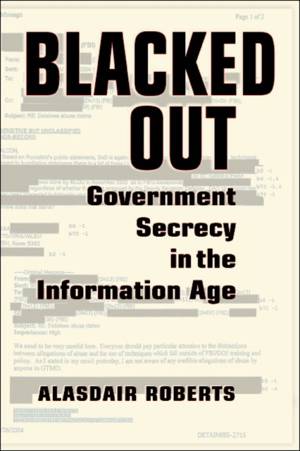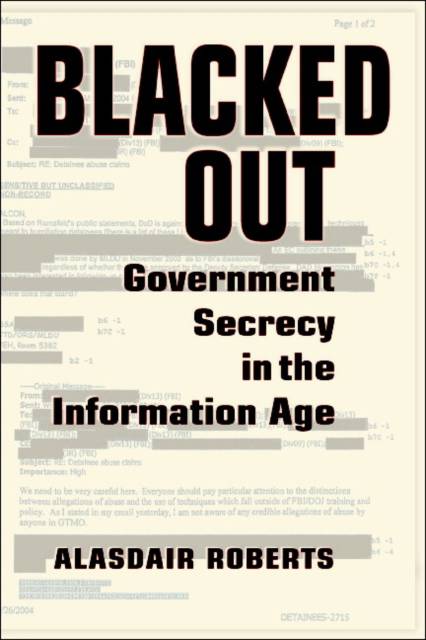
- Retrait gratuit dans votre magasin Club
- 7.000.000 titres dans notre catalogue
- Payer en toute sécurité
- Toujours un magasin près de chez vous
- Retrait gratuit dans votre magasin Club
- 7.000.0000 titres dans notre catalogue
- Payer en toute sécurité
- Toujours un magasin près de chez vous
72,45 €
+ 144 points
Format
Description
In 1966 the United States Congress passed the landmark Freedom of Information Act (FOIA) giving the public the right to access government documents. This "right to know" has been used over the intervening years to challenge overreaching Presidents and secretive government agencies. This example of governmental transparency has served as an inspiring case in point to nations around the world, spawning similar statutes in fifty-nine countries. Yet, despite these global efforts to foster openness in government, secrecy still persists--and in many cases--sometimes thrives. Alasdair Roberts, a prominent lawyer, public policy expert, and international authority on transparency in government, examines the evolution of the trend toward governmental openness and how technological developments have assisted the disclosure and dissemination of information. In the process he offers a comprehensive look at the global efforts to restrict secrecy and provides readers with a clearly written guide to those areas where the battle over secrecy is most intense. Drawing on cases from many different countries, Roberts goes further than the popular view that secrecy is simply a problem of selfish bureaucrats trying to hide embarrassing information by showing how such powerful trends as privatization, globalization, and the "networking" of security agencies are complicating the fight against secrecy. In our time when new terror threats provoke potentially counter-productive measures that impede openness, the need for a thorough and dispassionate discussion of openness in democratic societies is especially acute. Written in an engaging style, Blacked Out powerfully illustrates why transparency matters and why the struggle for openness is so difficult. Alasdair Roberts is Associate Professor in the Maxwell School of Citizenship and Public Affairs and Director of the Campbell Public Affairs Institute at Syracuse University. An internationally-recognized specialist on open government, he has written over thirty journal articles and book chapters. He is a 2005 recipient of the Johnson Award for Best Paper in Ethics and Accountability in the Public Sector. He has been a fellow of the Open Society Institute and the Woodrow Wilson Center for Scholars, and is a member of the Initiative for Policy Dialogue's Transparency Task Force.
Spécifications
Parties prenantes
- Auteur(s) :
- Editeur:
Contenu
- Nombre de pages :
- 336
- Langue:
- Anglais
Caractéristiques
- EAN:
- 9780521858700
- Date de parution :
- 30-01-06
- Format:
- Livre relié
- Format numérique:
- Genaaid
- Dimensions :
- 162 mm x 233 mm
- Poids :
- 571 g

Les avis
Nous publions uniquement les avis qui respectent les conditions requises. Consultez nos conditions pour les avis.






